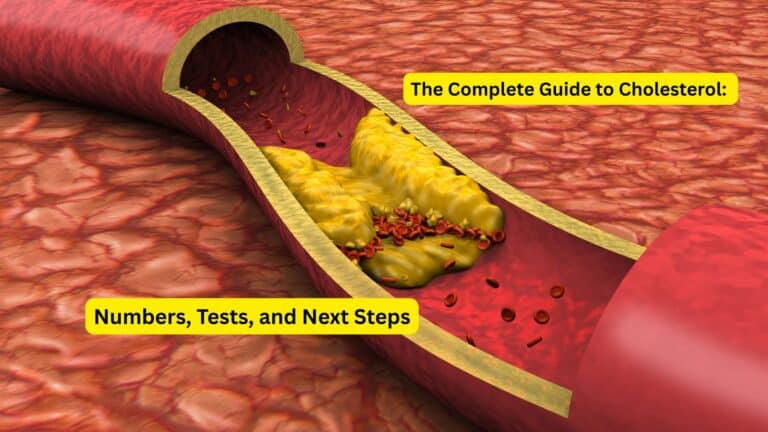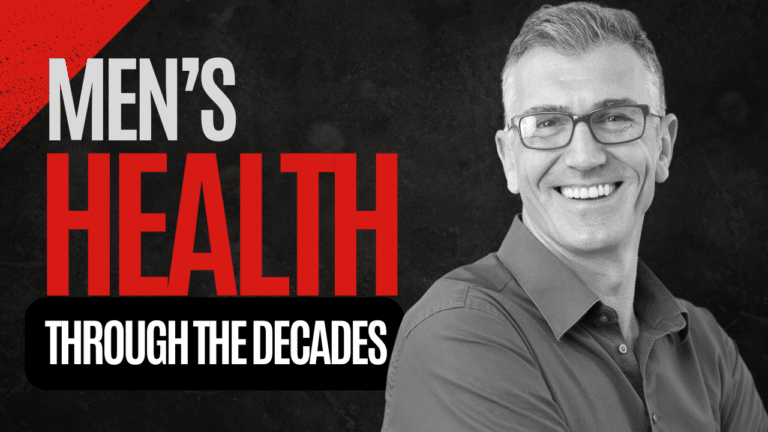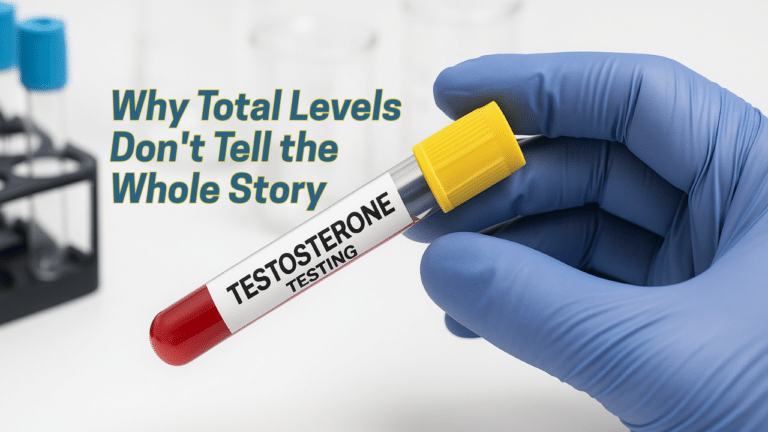The human heart is a remarkable organ that adapts and changes throughout our lifetime, undergoing both structural and functional transformations as we age. From the robust cardiovascular system of youth to the more complex needs of our senior years, understanding how aging affects heart health is crucial for maintaining optimal wellness at every stage of life. These age-related changes don’t just happen overnight – they occur gradually through decades of life, influenced by genetics, lifestyle choices, and environmental factors.
Recognizing these natural progressions empowers individuals to make informed decisions about their cardiovascular care and take proactive steps to support heart health. While some changes are inevitable parts of the aging process, many age-related cardiovascular risks can be significantly reduced through early awareness, lifestyle modifications, and regular monitoring. Walk-In Lab’s comprehensive heart health testing provides accessible tools for tracking these changes and maintaining cardiovascular wellness throughout life.
Heart Health in Childhood and Young Adulthood
The early decades of life typically represent peak cardiovascular performance, with young hearts demonstrating exceptional efficiency, flexibility, and resilience. During childhood and young adulthood, the cardiovascular system operates at optimal capacity, with strong heart muscle contractions, flexible blood vessels, and excellent oxygen delivery throughout the body.
While serious cardiovascular problems are relatively rare in younger individuals, certain conditions can still affect heart health during these formative years. Congenital heart defects, though often detected early, may require ongoing monitoring and care throughout life. Viral infections can occasionally lead to myocarditis, an inflammation of the heart muscle that requires immediate medical attention and can have lasting effects on heart function.
Perhaps most importantly, the lifestyle habits established during youth create the foundation for lifelong cardiovascular health. Poor dietary choices, physical inactivity, smoking, and excessive stress can begin accumulating cardiovascular damage even in young adults. The arterial changes associated with atherosclerosis can begin as early as the teenage years in individuals with risk factors such as high cholesterol, diabetes, or family history of heart disease.
This life stage presents the greatest opportunity for cardiovascular disease prevention. Young adults who establish regular exercise routines, maintain healthy diets, avoid smoking, and manage stress effectively set themselves up for decades of better heart health. The cardiovascular fitness achieved during youth can provide protective benefits that extend well into middle age and beyond, making early prevention efforts particularly valuable for long-term heart health outcomes.
Heart Health in Middle Age
Middle age brings the first noticeable changes in cardiovascular structure and function, marking the beginning of age-related adaptations that will continue throughout life. During the fourth and fifth decades of life, the heart and blood vessels begin showing measurable alterations that reflect the cumulative effects of aging and lifestyle factors.
One of the most significant changes involves arterial stiffening, as blood vessels gradually lose their elasticity due to collagen deposition and structural changes in the arterial walls. This stiffening process causes systolic blood pressure to rise with age, even in individuals who previously had normal blood pressure readings. The heart must work harder to pump blood through these less flexible vessels, beginning a cycle of gradual cardiovascular adaptation.
The heart muscle itself also begins changing during middle age. The left ventricular wall thickens modestly while early diastolic filling decreases, though systolic function generally remains well-preserved. These changes reflect the heart’s adaptation to increased workload and represent normal aging processes rather than disease states.
Middle age also brings increased prevalence of metabolic syndrome, obesity, and early atherosclerosis. Risk factors that may have been manageable in youth begin having more noticeable effects on cardiovascular health. Blood pressure, cholesterol levels, and blood sugar may begin trending upward, requiring more attention to diet, exercise, and potentially medication management.
For women, menopause represents a particularly significant cardiovascular transition. The decline in estrogen production during menopause removes important protective effects against heart disease, leading to accelerated cardiovascular risk. Post-menopausal women often experience changes in cholesterol profiles, increased blood pressure, and greater susceptibility to coronary artery disease, making preventive care especially important during this transition.
Heart Health in Older Adults
Advanced age brings more pronounced cardiovascular changes that significantly impact heart function and increase disease risk. The aging process accelerates during the senior years, with multiple systems experiencing simultaneous changes that can compound cardiovascular challenges.
The decline in sinoatrial node cells leads to slower heart rates and increased risk of arrhythmias, particularly atrial fibrillation, which becomes notably more common after age 70. The heart’s electrical conduction system becomes less reliable, potentially causing irregular heartbeats, dizziness, or fatigue. These rhythm disturbances can significantly impact quality of life and increase stroke risk if left untreated.
Aerobic capacity experiences substantial decline during the senior years, with maximum oxygen consumption decreasing approximately 10% per decade. This reduction stems from multiple factors including decreased maximum heart rate, reduced stroke volume, and impaired peripheral oxygen utilization. The practical result is decreased exercise tolerance, earlier fatigue during physical activities, and reduced overall cardiovascular fitness.
The risk of major cardiovascular events increases substantially with advanced age. Heart failure becomes more prevalent as the heart’s pumping efficiency gradually declines and the body’s fluid regulation becomes less precise. Stroke risk increases due to both atrial fibrillation and progressive atherosclerosis in cerebral blood vessels. Coronary artery disease often reaches clinical significance during the senior years, potentially requiring medical or surgical interventions.
Despite these challenges, many cardiovascular changes in older adults remain manageable with appropriate medical care and lifestyle modifications. Regular monitoring, medication management when necessary, and continued physical activity within individual capabilities can help maintain cardiovascular function and quality of life well into the senior years.
Molecular and Metabolic Shifts in Cardiac Aging
Recent advances in cardiovascular research have revealed the complex molecular and cellular processes underlying cardiac aging, providing new insights into why hearts change with age and potential targets for therapeutic intervention. These discoveries represent a significant evolution in our understanding of cardiovascular aging beyond simple structural changes.
Inflammation and oxidative stress play central roles in accelerating cardiovascular aging, creating cellular damage that accumulates over time. Chronic low-grade inflammation affects blood vessel walls, promotes atherosclerosis, and impairs heart muscle function. Oxidative stress from free radicals damages cellular components including DNA, proteins, and lipids, contributing to the progressive deterioration of cardiovascular tissues.
Cellular senescence, the process by which cells lose their ability to divide and function properly, increasingly affects heart and blood vessel cells with aging. These senescent cells can secrete inflammatory compounds that further damage surrounding tissues, creating a cycle of progressive cardiovascular dysfunction. Understanding these processes has led to research into senolytic therapies that could potentially slow or reverse some aspects of cardiac aging.
Emerging research into metabolic and genetic targets offers hope for new therapeutic approaches to cardiac aging. Scientists are investigating how changes in cellular metabolism contribute to heart aging and whether interventions targeting these pathways could preserve cardiovascular function. Genetic studies are revealing why some individuals age more successfully than others, potentially leading to personalized approaches to cardiovascular care.
These molecular insights are beginning to translate into clinical applications, including biomarker development for early detection of cardiovascular aging and novel therapeutic strategies aimed at slowing or reversing age-related changes. While still largely experimental, these approaches represent promising directions for future cardiovascular care that could significantly improve outcomes for aging populations.
Lifestyle and Preventive Strategies
The most powerful tools for maintaining cardiovascular health throughout life remain lifestyle modifications and preventive strategies that can significantly slow age-related decline and reduce disease risk. These approaches are effective at every life stage and provide benefits that extend far beyond cardiovascular health alone.
Regular aerobic exercise represents the single most effective intervention for preserving heart function throughout the aging process. Exercise helps maintain arterial flexibility, preserves heart muscle strength, supports healthy blood pressure, and improves overall cardiovascular efficiency. Even moderate physical activity, such as brisk walking for 30 minutes daily, can provide substantial cardiovascular benefits and help offset age-related decline in heart function.
Dietary choices profoundly impact cardiovascular aging, with heart-healthy eating patterns like the Mediterranean or DASH diets showing particular benefits for long-term heart health. These dietary approaches emphasize fruits, vegetables, whole grains, lean proteins, and healthy fats while limiting processed foods, excessive sodium, and added sugars. The anti-inflammatory and antioxidant properties of these foods help protect against cardiovascular damage and support healthy aging.
Managing chronic conditions becomes increasingly important with age, as conditions like hypertension, diabetes, and high cholesterol can accelerate cardiovascular aging if left untreated. Regular monitoring and appropriate treatment of these conditions can prevent or slow the progression of cardiovascular disease, making medical management an essential component of healthy aging.
Smoking cessation and alcohol moderation provide immediate and long-term cardiovascular benefits regardless of age. Smoking damages blood vessels and accelerates atherosclerosis, while excessive alcohol consumption can weaken heart muscle and contribute to arrhythmias. Eliminating these risk factors can help preserve cardiovascular function and reduce disease risk throughout life.
Screening and Testing Recommendations
Regular cardiovascular screening forms the cornerstone of preventive heart care, enabling early detection of problems before they become serious health threats. The specific tests and frequency of screening evolve throughout life, reflecting changing risk profiles and the natural progression of cardiovascular aging.
Cholesterol testing should begin in young adulthood and continue regularly throughout life, as lipid profiles can change significantly with age and lifestyle factors. Blood pressure monitoring becomes increasingly important with advancing age due to the natural tendency for systolic pressure to rise. Glucose testing helps identify diabetes and prediabetes, conditions that significantly accelerate cardiovascular aging and require careful management.
Walk-In Lab’s comprehensive cardiovascular panels provide accessible, confidential testing that removes common barriers to regular screening. These convenient testing options enable individuals to monitor their cardiovascular risk factors proactively, track changes over time, and make informed decisions about their health care. Regular testing is particularly valuable for detecting subtle changes that may not yet cause symptoms but could indicate developing cardiovascular problems.
Advanced screening may become appropriate with increasing age or risk factors. Electrocardiograms can detect heart rhythm abnormalities or evidence of previous heart damage. Imaging studies may be recommended to assess heart structure and function. Screening for atrial fibrillation becomes particularly important in older adults due to its association with increased stroke risk and the availability of effective treatments.
The key to effective cardiovascular screening lies in consistency and follow-through. Regular testing enables healthcare providers to identify trends and intervene early when problems develop, often preventing more serious complications and preserving quality of life throughout the aging process.
Frequently Asked Questions
How does aging affect heart rate?
Aging causes a gradual decline in maximum heart rate and heart rate variability due to loss of cells in the sinoatrial node and changes in the heart’s electrical conduction system. While resting heart rate may remain relatively stable, the heart’s ability to increase rate during exercise or stress diminishes with age. This contributes to the overall decline in aerobic capacity and exercise tolerance that occurs during aging.
Why does blood pressure rise with age?
Blood pressure, particularly systolic pressure, typically rises with age due to progressive stiffening of the arteries. As blood vessels lose elasticity from collagen buildup and structural changes, the heart must generate higher pressure to maintain adequate blood flow throughout the body. This process is considered a normal part of aging, though it increases cardiovascular risk and may require medical management.
Can exercise offset the effects of aging on the heart?
Regular aerobic exercise can significantly slow age-related decline in cardiovascular function and may even reverse some changes associated with sedentary aging. Exercise helps maintain arterial flexibility, preserves heart muscle strength, and supports efficient oxygen delivery. While exercise cannot completely prevent aging, it can help maintain cardiovascular fitness at levels typically seen in much younger sedentary individuals.
Are women’s hearts affected differently by aging?
Women experience unique cardiovascular changes related to hormonal fluctuations, particularly during menopause when declining estrogen levels remove important protective effects against heart disease. Post-menopausal women often see accelerated increases in blood pressure, cholesterol levels, and overall cardiovascular risk. Women also tend to develop heart disease at older ages than men but may experience different symptoms and outcomes.
What cardiovascular screenings should older adults prioritize?
Older adults should focus on regular monitoring of blood pressure, cholesterol levels, blood glucose, and heart rhythm. Annual screening for these basic parameters can detect most common cardiovascular problems early. Additional testing such as electrocardiograms, stress testing, or imaging studies may be recommended based on individual risk factors and symptoms. Screening for atrial fibrillation becomes particularly important due to its increased prevalence and stroke risk in older adults.
When should someone start worrying about age-related heart changes?
Age-related cardiovascular changes begin gradually in middle age, but most individuals don’t need to worry about normal aging processes. However, symptoms such as chest pain, unusual shortness of breath, irregular heartbeat, or decreased exercise tolerance warrant medical evaluation regardless of age. Regular screening and preventive care provide the best approach to managing cardiovascular aging proactively.
Conclusion
The relationship between aging and cardiovascular health represents a complex interplay of natural biological processes, lifestyle factors, and preventive care strategies. While some changes to heart structure and function are inevitable parts of aging, the trajectory and impact of these changes can be significantly influenced through proactive health management and regular monitoring.
Understanding what to expect at each life stage empowers individuals to make informed decisions about their cardiovascular care and take appropriate preventive measures. From establishing healthy habits in youth to managing chronic conditions in later years, each stage of life offers opportunities to support heart health and reduce disease risk. The key lies in recognizing that cardiovascular aging is not a passive process but one that responds positively to consistent care and attention.
Regular cardiovascular screening represents one of the most valuable tools for maintaining heart health throughout life. By tracking key indicators such as blood pressure, cholesterol levels, and glucose, individuals can detect problems early and work with healthcare providers to implement effective interventions. Walk-In Lab’s accessible testing services remove common barriers to regular monitoring, enabling proactive cardiovascular care at every stage of life.
Take control of your cardiovascular health today. Order your comprehensive Heart Health Panel with Walk-In Lab to establish baseline measurements and begin tracking your cardiovascular wellness journey. Your heart health is an investment that pays dividends throughout your lifetime – make the commitment to protect it at every age.
Medical Disclaimer: This article is for informational purposes only and is not a substitute for professional medical advice, diagnosis, or treatment. Always consult with qualified healthcare providers regarding questions about your health conditions and before making changes to your healthcare regimen. Walk-In Lab’s testing services are intended to supplement, not replace, professional medical care.






